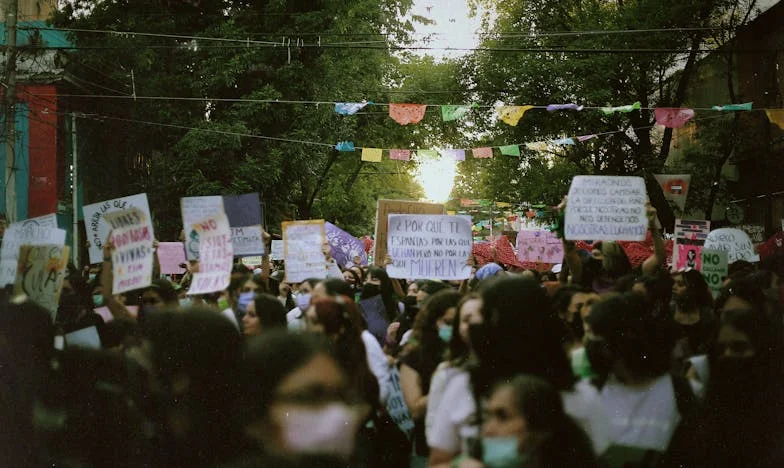Married for Fortune: My American Dream or My Undoing?
“You could at least look at me, Emily! Say something!”
His voice echoed through the marble-tiled foyer, bouncing off the chandelier that cost more than my entire childhood home. I clutched the letter in my hand, the one with my mother’s handwriting, as if it could tether me to the person I used to be. But I couldn’t look at him. Not yet.
“I’m tired, Nathan,” I managed, voice cracking. “Can we do this later?”
He ran a hand through his perfectly styled hair, exasperated. “It’s always later with you. I bought you everything you wanted. What more do you want from me?”
I pressed my lips together, fighting the urge to scream. What did I want? What did I ever want, really? To be seen, maybe. To be loved for who I am, not for how well I could smile at charity galas or how I looked on his arm at the Met.
Just hours before, I’d been standing at my parents’ grave, snow crunching beneath my boots. The city snow was dirty, almost gone — but at the cemetery, it was pristine and untouched, just like the memories I kept of home. Mom’s grave was easy to find, but Dad’s? I hadn’t visited in years, not since he died in that car accident when I was fifteen. I knelt down, brushing the snow off the headstone, and let my tears freeze on my cheeks. I wanted to ask them: Did I make the right choice?
I grew up in Millfield, Ohio — the kind of town where everyone knows your business, and you know you’ll never leave unless you claw your way out. After Dad died, Mom worked double shifts at the diner. I watched her hands crack every winter, her smile fade every year. She never complained, but she never dreamed, either. I swore I’d never let that happen to me.
So when Nathan Carter walked into my life, all blue eyes and tailored suits, I saw my escape. He was ten years older, a self-made millionaire from New Jersey. He made it all seem so easy: the penthouse in Manhattan, the Hamptons weekends, the sparkling future he dangled in front of me like a diamond necklace. I was twenty-two, with nothing to lose except myself.
I married him three months later. My mother didn’t come to the wedding. She said she had to work. I always wondered if that was the truth.
At first, it was intoxicating — the world of private drivers and designer clothes, friends who told you how stunning you looked while eyeing you like competition. I tried to fit in, to learn which fork to use and how to laugh at jokes I didn’t understand. But the more I tried, the more invisible I felt. Nathan was busy, always busy. I was a fixture in his life, like his custom-made watch or his art collection. I started to fade into the background.
Three years in, the cracks showed. I missed my mother’s funeral because Nathan had an IPO launch. He said, “You know how important this is, Em. We can’t just drop everything.” I told myself she’d understand, but the guilt gnawed at me until I could barely look at myself in our gilded bathroom mirror.
I started volunteering at a community center in Harlem, teaching GED classes. It was the only place I felt real. I told Nathan it was for the optics, but really, it was for my sanity. It was there I met Marcus, a teacher with a crooked smile and a laugh that sounded like home. He listened to my stories, asked about my family, and remembered my mother’s name. I found myself lingering after classes, just to talk, just to feel seen.
One night, after a gala where I played the perfect wife, Nathan accused me of embarrassing him. “You drank too much. You made a scene.”
“I tipped the waiter,” I snapped. “That’s hardly a scandal.”
He glared at me, and I saw something cold in his eyes. “You’re lucky, Emily. Most women would kill to have your life.”
Would they?
A week later, I got the letter. My mother’s best friend had found it among her things — a letter she wrote to me before she died, never mailed. It said, “Don’t let anyone tell you who you are, Em. Not even love. Especially not love.”
That’s why I went to her grave. That’s why I stood in the snow, letting the cold numb my skin until I finally felt something again. And when I came home, Nathan was waiting, ready to fight about something that didn’t matter, and all I could think was: Is this what I wanted?
I finally turned to him, my voice barely above a whisper. “Nathan, when’s the last time you really saw me? Not the woman at your parties or in your bed. Me.”
He looked at me like I was speaking a foreign language. Maybe I was. Maybe I always had been.
Now, as I sit in the darkness of our penthouse, the letter in my lap, I wonder if it’s too late to find my way back. To myself, to the girl who dreamed of more but never knew the cost. I wonder if anyone else out there traded their soul for comfort and is still searching for a way home.
So I ask you — is security worth sacrificing who you are? Or does real love mean being seen, truly seen, for everything you are and everything you’re not?
